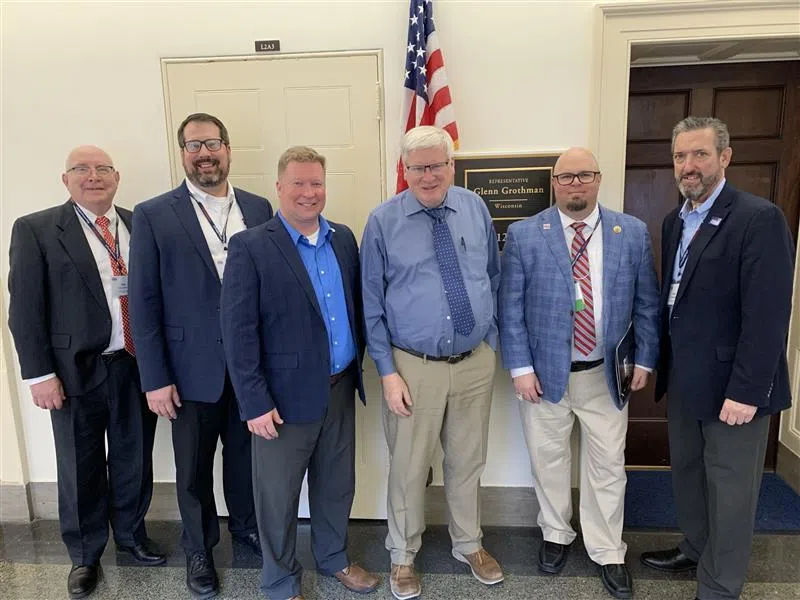
Municipal utilities around the country could be facing issues under the Trump Administration.
Manitowoc Public Utilities General Manager Troy Adams and a local contingency were in Washington, D.C. last week to address some concerns they have as the budget is being crafted.
All of the issues they presented to the likes of Congressman Glenn Grothman and others all boil down to two things, rates and reliability.
The first topic the group, along with others in the American Public Power Association, presented was the protection of Municipal Bonds.
Adams explained to SeehaferNews.com that local utilities around the country benefit from not having to pay taxes on municipal bonds.
“We could end up losing that tax exemption for municipal bonds,” he revealed. “What does that mean? Well, it means higher rates, higher property tax.”
Adams did say that the topic was not “on the radar” of any of the legislators they spoke with.
“Which doesn’t mean that it’s not something that happens in the 11th hour when they’re trying to get a budget passed,” he noted. “It has been a target before. It is likely going to be a target again when they’re trying to make it work.”
The potential of tax-free municipal bonds going away has left MPU and the APPA being proactive in fighting for the program to stay.
However, Adams explained that the vibe in Washington is different in the second Trump presidency.
“We’ve been told in a couple of different offices that nobody really knows what’s going on and what’s happening this year,” Adams revealed. “There have been a lot of executive orders different than normal, and it’s changing how Congress is looking at the budget and how they’re entering that whole process.”
Keeping rates low has always been a goal for MPU.
In fact, the local utility provider is in the lower 10% for rates in the state, which is why Adams and the MPU Commission has been working with legislators to keep a tax credit that was introduced last year alive which he says levels the playing field with larger utilizes such as Xcel Energy and WPS.
“Decades of negotiation and lobbying for that, and we finally got it last year.” Likely this is one of the things that could be cut,” Adams explained. “We don’t want to have that disappear from municipals and co-ops again because there’s a lot of infrastructure needs to be built to meet the growing load.”
The group also asked legislators to enact energy permitting reform, and to fix the supply chain issues to ensure lights will turn on when the switch is flipped.
“Reliability is key for electric,” he put it bluntly. “We want to make sure that permitting doesn’t become a barrier and supply chain kind of plays into that, too. We need access to the materials.”
The supply chain issues can be directly linked back to the COVID pandemic, which is when suppliers decided they didn’t want to sit on inventory.
“They want to be able to almost produce direct to market. So you order something, they build it, and it gets sent to you,” he said. “That’s fine, except for the queue. You’re not able to buffer when there’s a hurricane or an ice storm or whatever. You know, that puts the pressure on the local utilities then to build up supply.”
The APPA contingency ended up having a total of nine meetings while in Washington D.C., and Adams said he felt good about those conversations.
He noted that MPU has been very proactive on the legislative side, which has led to a solid relationship with the legislators representing us in our nation’s capital.
“We feel like we’re already in that position when we’re coming in,” Adams noted. “This is not the first time that anybody has heard these things. These have been common themes for the last couple of years.”
There were a lot of scary “what ifs” discussed, but Adams ensured SeehaferNews.com that MPU is in a great place right now, with highly competitive electric rates, an expansion project at the waste water treatment facility, and a potential expansion in the works at the water distribution facility.












